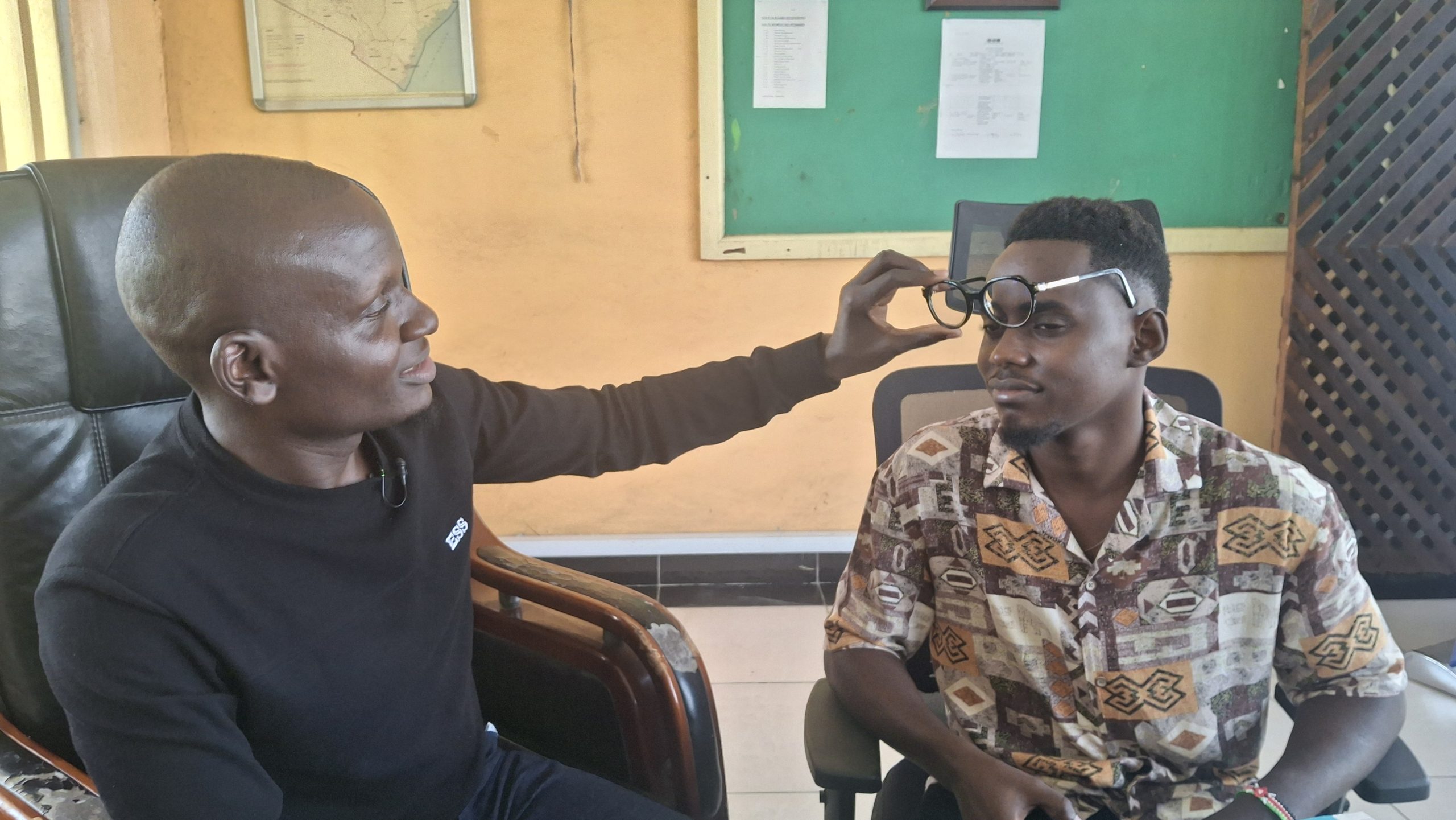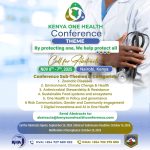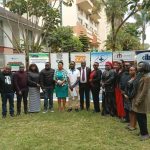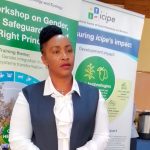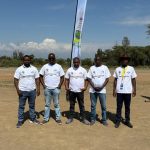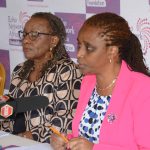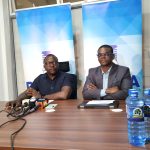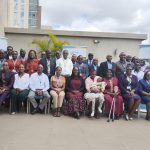Dr. Victor Opiyo, an optometrist, helps his patient Denis Somba fit his new glasses during a routine eye check-up.
Nairobi, Kenya, October 9, 2025 — For 28-year-old Dennis Somba, life was moving along just fine until one morning, his world began to blur. It started subtly, with flashes of light flickering across his left eye. At first, he brushed it off, thinking it was fatigue. But soon, part of his vision went dark.
“I thought it was just a strain from too much screen time,” Dennis recalls softly. “Then one day, I couldn’t see clearly anymore. That’s when I panicked.”
He visited several optical outlets around Mombasa. Each time, he was told his eyes were fine. But deep down, Dennis knew something was terribly wrong. His world was fading literally.
When he was finally referred to Dr. Victor Opiyo, President of the Optometry Association of Kenya and Secretary General of the African Council of Optometry, time was no longer on his side.
A Race Against Time
“When Dennis came to us, the situation was urgent,” Dr. Opiyo says, his tone calm yet firm. “He had what we call retinal detachment a serious condition that can lead to permanent blindness if not treated immediately.”
Dennis was born short-sighted, a condition known as myopia. Over the years, his eyeball continued to stretch, thinning out the retina the delicate layer at the back of the eye that captures light, just like a camera film.
“Once the retina detaches, vision can be lost forever,” Dr. Opiyo explains. “It’s rare for young people, but in Dennis’s case, it was advancing fast.”
The symptoms were there all along — the flashes, the floating shadows, the dimming light. “These are red flags people often ignore,” says Dr. Opiyo. “But in eye health, time is everything.”
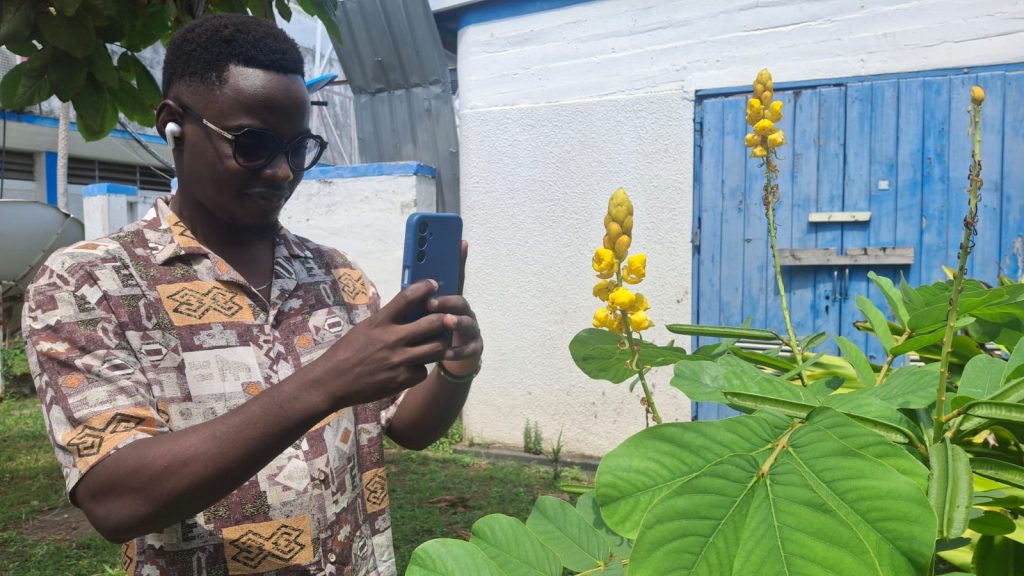
Denis Somba, a content creator from Mombasa who went through a successful surgery to correct retinal detachment uses his phone to show his eyes sight has been fully after the interview.
Facing the Knife
Within days, Dennis was booked for surgery. The fear was real. “I didn’t know what would happen,” he says. “But the doctor’s confidence gave me courage. My family and friends stood by me, and I just prayed for the best.”
The operation took about an hour and a half. Afterwards came weeks of strict rest and careful recovery. “He was one of the most disciplined patients we’ve had,” Dr. Opiyo says with a smile. “That played a huge role in his recovery.”
Two weeks later, Dennis experienced what he calls a miracle moment. “I could see again not perfectly, but clearly enough to recognize faces,” he says, his face lighting up. “It was like seeing the world for the first time.”
Today, Dennis has regained full vision in his left eye. He calls it his “second chance at life.”
The Bigger Picture
As Dennis celebrates his recovery, thousands of Kenyans continue to battle preventable blindness. According to Dr. Opiyo, Kenya has only about 640 optometrists and fewer than 200 ophthalmologists serving a population of over 56 million people.
“Nearly a quarter of Kenyans need eye care, and about half of vision loss cases are preventable,” he notes. “But the biggest challenges are cost and access. Many people in rural and low-income areas can’t get the help they need.”
He calls for stronger government commitment more training for eye care professionals, deployment of optometrists across all county hospitals, and clear policies to regulate the profession.
“Eye care should not be a privilege,” he says. “It’s a basic right.”
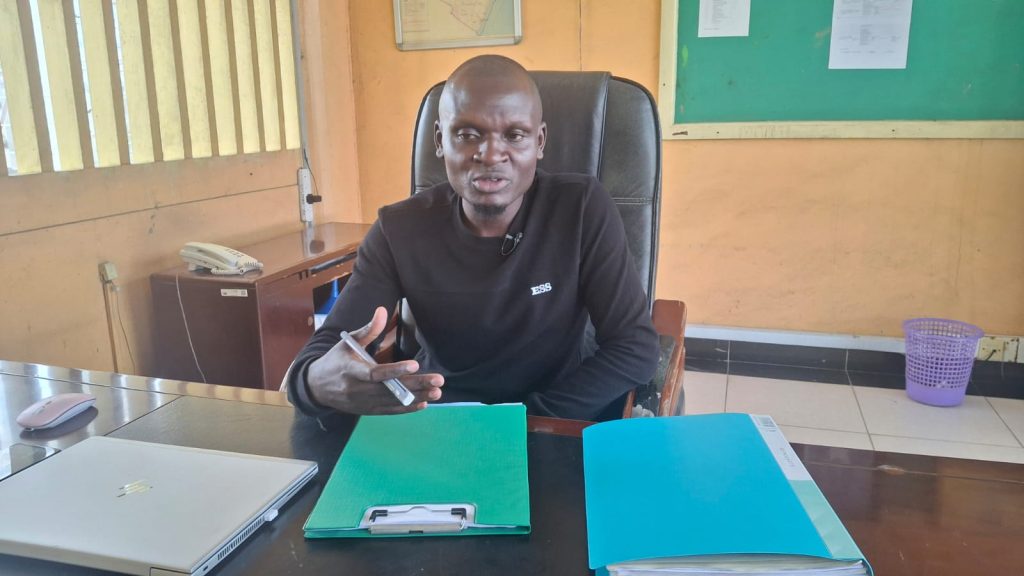
Seeing the Warning Signs
Globally, nearly half of all vision loss is preventable with early intervention. But that requires awareness.
“Everyone should have their eyes checked at least once a year,” Dr. Opiyo advises. “For children, screening before joining school is crucial. Adults with conditions like diabetes or hypertension should get tested every six months.”
He adds that symptoms such as flashing lights, floaters, or blurry vision should never be ignored. “Sometimes, your eyes are trying to tell you that something deeper is wrong even neurological issues,” he warns.
Clearing the Confusion
Many Kenyans still don’t know who to see when their eyes start acting up. Dr. Opiyo clears the air:
“An optometrist examines eyes, prescribes glasses, and manages certain eye conditions. An ophthalmologist is a medical doctor who performs surgeries. Both are important and they must work together through a strong referral system to protect patients like Dennis.”
Vision for the Future
Dr. Opiyo believes that awareness should begin in schools and communities. “Students can be powerful ambassadors of eye health,” he says. “They can spread the message of preventive care from reducing screen time to using proper lighting.”
He hopes that World Sight Day will push more Kenyans to act. “This is not just a day to wear T-shirts and talk about eyes,” he says. “It’s a call to action for the government, the public, and every one of us to take eye health seriously.”
Simple habits, he adds, can make a big difference wearing sunglasses, eating healthy, avoiding long hours on screens, and going for regular checkups.
A Message from Dennis
For Dennis, World Sight Day 2025 holds a deeply personal meaning. “It reminds me of how fragile life can be,” he says thoughtfully. “Losing sight is losing connection to the world. I was lucky — but many people won’t be, unless they act early.”
He now shares his story openly, hoping to inspire others. “Don’t wait until it’s too late,” he urges. “If something feels off, get checked. Eyes are life protect them.”
As he speaks, sunlight glints softly through the clinic window, and Dennis blinks taking in the moment with gratitude.
For him, seeing again isn’t just about vision.
It’s about hope, awareness, and a reminder that sometimes, a single decision to seek help can change everything.

